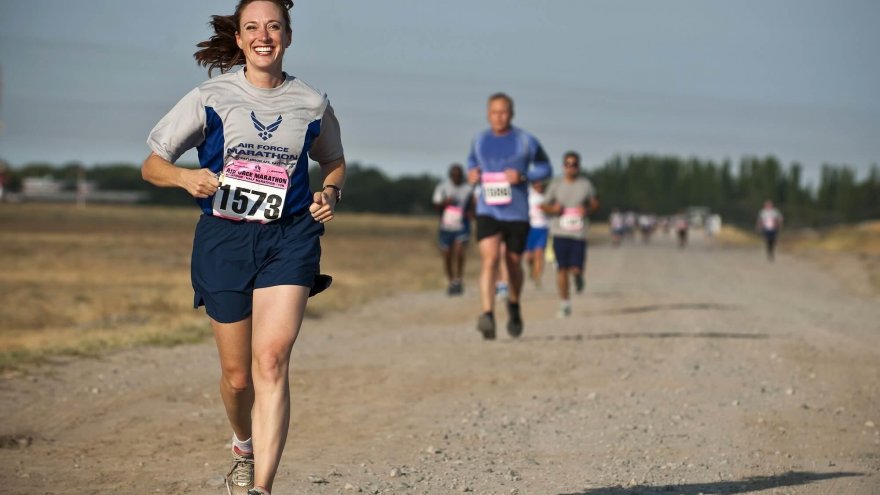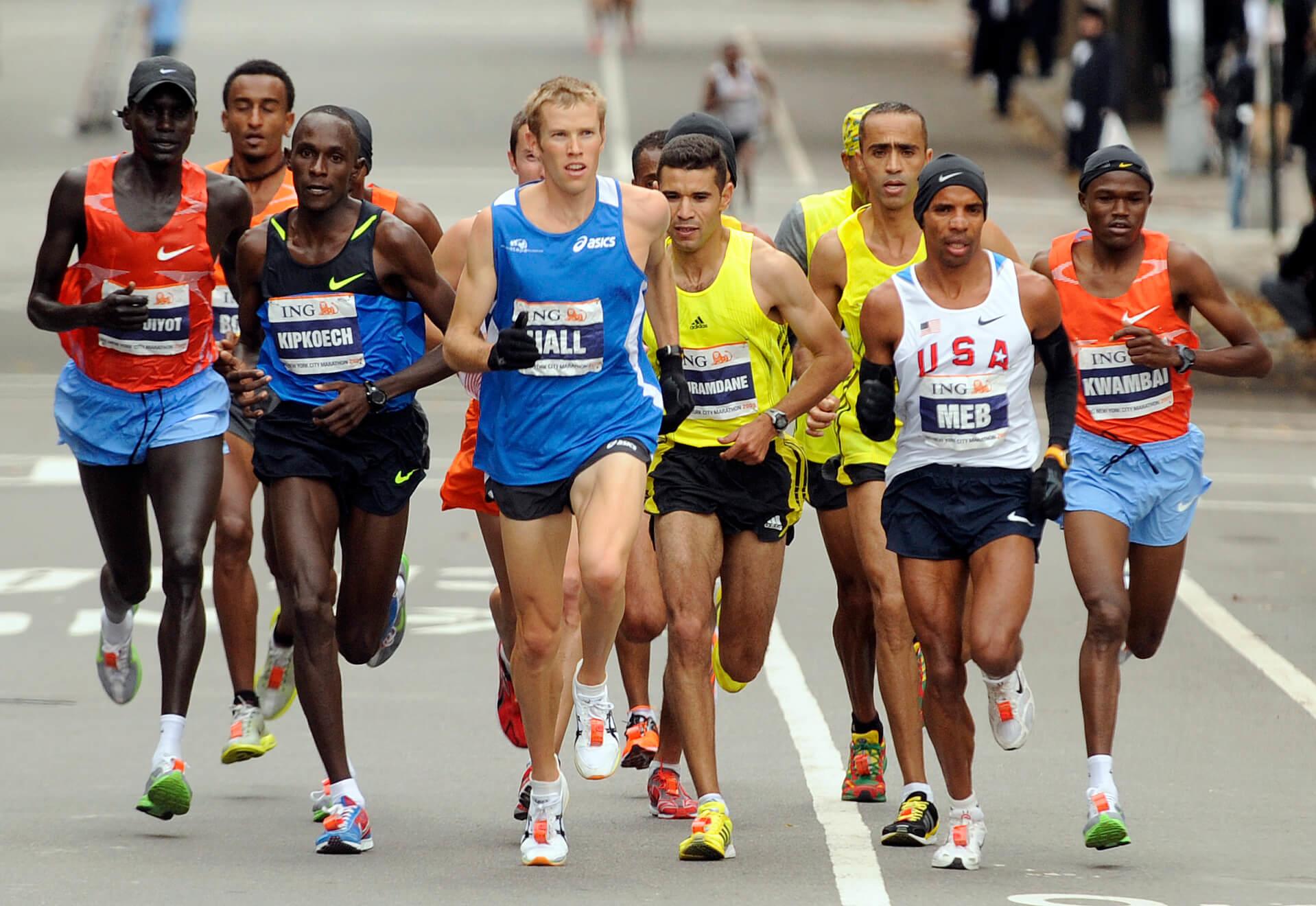Building Your Pre-Race Checklist

Like most athletic pursuits, running is about building good habits. Along with getting into a regular workout schedule, you need to wrangle your diet and adjust many other aspects of your overall lifestyle. Again, success in your fitness goals depends largely on making and enforcing this small changes over time.
But the same is true when it comes to individual events. Your ability to perform your best come race day will be heavily influenced by whether or not you can build and stick to a respectable and well-structured pre-race checklist. What does a basic checklist look like? How can you adjust it to your needs?
The Basics
The goal of your pre-race checklist is to prepare you for the race. It’s really that simple. In reality, though, preparing for your event takes months. After all, that’s what you’re doing when you train – you’re preparing. So, it is possible for you to have several different pre-race checklists that operate a numerous timeframes. This list, however, is designed to be a last-minute, day-of affair.

With that in mind, this particular checklist assumes that you’ve done the obvious stuff such as sticking to a solid training routine ahead of time. All that having been said, then, here’s the basic idea for your pre-race check list.
Get at least eight hours of sleep the night before.
Granted this one technically breaks the “day-of rule” but adequate sleep is so important that it deserves an exception. Keep in mind that nerves and anxiety the night before a race may not allow you to get a full 8 hours of sleep, so make sure to at least get eight hours of sleep two nights out from the race. Not only do those eight hours of quality sleep prepare your mind and body for the demands of the race but they also help to reduce your stress levels and will make it easier for you to stick to the rest off the list.
Have an early breakfast.
In order to be properly fueled, a well-designed pre-race breakfast is absolutely vital. This meal will be low in fat and fiber, while providing plenty of easily-digestible carbohydrates. Which highlights the other important thing to consider in regards to this meal: your body should have plenty of time to digest it. To allow for that and avoid any digestive upset during the race, eat no sooner than two hours before the race.
Grab your clothes and gear.
Ideally, you would have selected your clothing and shoes and all that the night before. And this is about more than appearances. Consider the length of the race, the terrain and the forecasted weather for the day. Depending on these and other factors, you may have to add or remove layers during the race. So, you want to make sure you have all of that ready to go. You don’t want to realize that you forgot something at home once you get to the venue.

Arrive early.
Aim to the get to the venue at least an hour before your race time. This will allow you plenty of time to check in, get your bearings and use the bathroom. Again, the idea is to limit any unnecessary stress so that you can focus on the race.
Set a goal.
Strictly speaking, this step isn’t totally time-bound and can really be done at any point before the race. Just be sure to do it. Have at least one goal in mind when you head the starting line that will keep you motivated and give you something to plan for. This goal should be realistic and relevant based on your training. Don’t try to do anything new or novel on race. Instead, think about they way you’ve been training and simply try to outdo yourself a touch.
A Word On Warm-Ups
It’s very likely that you noticed a glaring omission in the list above: that of warm-ups. Of course, this is a vital part of performance. Whether or not you warm-up before a race, however, should depend entirely on the length of the race.
Keep in mind that the goal of a warm-up is to prime your body for activity. During long races like marathons, though, you really shouldn’t go all out until several miles in. Which means that that portion of the race essentially becomes your warm-up. Performing a separate routine, then, is unnecessary and could waste valuable energy.

For shorter races like 5Ks, however, the situation is very different. Since the race itself won’t take very long, dedicating any section of your performance to a warm-up is essentially a waste of valuable time. To prepare yourself for these events, then, you would want to include a 5 minute warm-up consisting of dynamic stretches in your pre-race checklist.
Other Considers
Since a pre-race checklist is, by its very nature, a collection of things that need to be done before a race, it leaves out a very important group of activities – those that you need to avoid the day of your race.
Don’t try anything new. Anything new, including clothing, foods, beverages or behaviors should be completely absent from your race day prep. This is all about ritual. If you don’t know how a particular meal or drink is going to affect your stomach, don’t eat it. New shoes or clothing may end up being a lot more uncomfortable than you expecting, even becoming painful after a few miles. Stick with what you know on race day.
Watch your water intake. Of course, you need to be hydrated on race day. For longer events, though, you don’t want have to make too many stops at the port-a-potties. Having lots of water in your system can also slow you down and cause digestive pain during the run.
Latest Articles
 Is Running on a Treadmill Easier Than Running Outside?Runners have their own preferences, whether it is treadmill running, running outside on the road, or exploring trails. So...
Is Running on a Treadmill Easier Than Running Outside?Runners have their own preferences, whether it is treadmill running, running outside on the road, or exploring trails. So... Is It OK to Use Trail Running Shoes on the Road?While trail running shoes can be used on roads, especially in situations where a runner encounters mixed terrains or pref...
Is It OK to Use Trail Running Shoes on the Road?While trail running shoes can be used on roads, especially in situations where a runner encounters mixed terrains or pref... How to Fix Sore Quads After Running?Rest, ice, gentle stretching, and over-the-counter pain relievers can help soothe sore quads after running. Also, ensure ...
How to Fix Sore Quads After Running?Rest, ice, gentle stretching, and over-the-counter pain relievers can help soothe sore quads after running. Also, ensure ... 10 Fruits With The Most Electrolytes to Replace Sports DrinksThese fruits are high in electrolytes such as potassium, magnesium, and calcium, essential for hydration, muscle function...
10 Fruits With The Most Electrolytes to Replace Sports DrinksThese fruits are high in electrolytes such as potassium, magnesium, and calcium, essential for hydration, muscle function...

